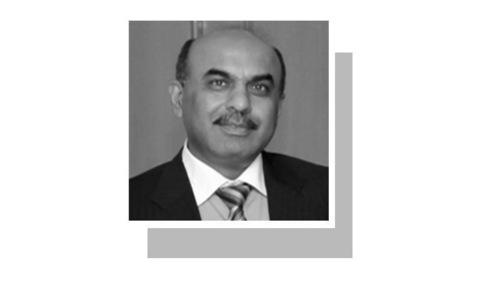KARACHI: It’s a challenging job to present and highlight the emotions, inner struggles, and thoughts of single mothers and their relationship with their children in a dramatic reading in front of an audience. However, it was done well by the performers at the Arts Council of Pakistan on Saturday evening.
The dramatic reading of Und dann kam Mirna (And Then Came Mirna), a play about lives of single mothers, was organised by the Goethe Institut Karachi, where two actors from Rung Munj Group read out the play’s Urdu translation.
Originally written by Sibylle Berg in the German language, the play has been translated into Urdu by Syed Salman Abbas and directed by Uzma Sabeen.
The plot, set after the Second World War, revolves around a mother [played by Zarqa Naz] and her daughter Mirna [Uzma Sabeen] who are packing their belongings to leave their city to a new place in a village. The mother is in her mid-30s while her daughter is 10 years old.
Urdu dramatic reading of German play presented at Arts Council
They’re in their apartment, with suitcases and boxes packed with their valuables. It is the conversation that they have during this time, however, which brings to the fore the major themes of the play.
The mother recalls her getting into a relationship with Mirna’s father and, despite not being in love with him, getting pregnant. She then recalls her concerns about having a child, especially in a world marred by wars, extremism, economic fears and multiple other insecurities. Nevertheless, Mirna is born and the father is no more with them.
She says she hated her own mother and also dislikes her being a mother because that is something which has made her life small and mediocre, just like three of her female friends, who are also single mothers. She feels she’s lost her individuality, her vitality, and freedom and become quite lonely and alienated form society as she has no time to do things she could do before due to her parental responsibility.
Concurrent with that runs her fear of getting older and that life would continue to be the way it is: just getting along with things. There is, nevertheless, a yearning for a new beginning and a new life.
However, her daughter Mirna also criticises and interrogates her just as she [mother] did her own mother. Mirna’s thoughts also reflect the generation gap that is growing fast in the age of post-war era due to technological and social changes.
She thinks it is necessary for parents to be together with a child because if one of them leaves, the child is not left alone and vulnerable. She also thinks her mother’s ideas and the cultural concerns of that time to be outdated and reflects thoughts that are more individualistic and concerned less with the philosophies and politics of that time.
Although the actors struggled with pronunciation of a few words, their delivery of the dialogue, tone, and use of gestures were otherwise strong and effective, especially of Uzma who seemed more in control of the script.
Published in Dawn, December 1st, 2024
















































Dear visitor, the comments section is undergoing an overhaul and will return soon.